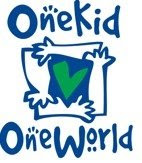How Good Are Free Notes?
An unnamed Waver sent me an email this morning - she was upset. Someone on a message board offered to give her notes, and within the notes, this selfless person rewrote some of the dialogue. The Waver was really upset by this - naturally - and wondered if that's kosher or if maybe she needs thicker skin. Now in the interest of full disclosure, I have read that particular script and while like any script, it has room for improvement, dialogue is not one of those areas. She writes great dialogue and has had a lot of positive things come from that script.
Getting notes for free (or cheap) from message board types can be heaven and it can be hell. Some who offer free notes really are quite good at it - and others - well, they aren't very experienced. This is what bad note givers do (and yes, this has happened to me, a million years ago):
Bad note givers are totally SUBJECTIVE. They give their opinion based on what they like and how they would write this story. But it's not their story. They make overt suggestions ala what THEY would do if the story were theirs. Sometimes they'll change or suggest dialogue to the way they would like to see it written. Cardinal no-no.
Bad note givers have an unearned sense that they KNOW what is good and what is bad. And usually this vibe comes across in the notes. Ergo, bad note givers put the writer on the defensive.
Because some free note giver on a message board offers to give you notes doesn't mean that they'll be bad - or good. The stumbling block is that you'll be on the defensive very quickly because the free note giver has very little experience doing this. So the jumping off point is dysfunctional; they aren't experienced, so they have no authority in your view, and you'll get defensive and they might be too subjective...and the whole experience can be a mess.
Free notes are hit or miss. The problem is that if they are a miss, the writer is left with a feeling of having been judged by someone not qualified to judge them...and even if there were salient points, they will not hear those points. It's like I said about the spoonful of sugar.
Giving good notes is like being a therapist - oh, sure, the therapist sits there in their cashmere scarf sipping tea, all curled up in their chair and they seem very ordinary - they don't discuss your issues with you from a technical standpoint - they get you comfortable but while you're talking, they're running your issues through their Psychology Degree Learning Background and searching for and addressing issues that have distinct jumping off points from an academic point of view. But when they talk to you, they put it in such a way that makes you feel comfortable. Something good is happening in this interaction but it's beneath the surface. If they asked you questions more directly, you'd shut down and now the session is useless. It's about how to get people to open up and hear you.
Free (and bad) note givers don't have enough experience working with writers to use this methodology. They may (or may not) have some good points to make on the script but they don't know how to deliver that information in such a way that the writer feels empowered. And though they'd never admit it in a million years, they get ego-gratification about pointing out what's wrong with your script because somewhere deep inside there's a little voice saying I could do this better than you.
A professional reader doesn't have that voice because they just don't care enough. They don't know you, they have nothing invested in who's a better writer. It's a job. On a message board, there's sometimes a weird, gossipy thing that goes on where someone offers to give you notes, and then they can sort of say on the board, in hushed tones - Oh, I read that script - it really isn't that great. It's one-upmanship. Professional readers aren't into that. They aren't going to go to CURLYGIRL3 and say Hey, did you know that FOXYCHICK isn't a very good writer? Did you know that? She posts so much about her accomplishments but she's really not that great!
A lot of writers can fall into one-upmanship. It happens. A writer is getting traction on a script and suddenly everyone wants to read it. Know why this happens? Not because they are truly curious as to what makes a script gain traction but because they secretly want to say - Oh. It's not really that great. I have NO idea why that script is at William Morris. Hmmph.
That's happened to me recently. The script my partner and I have being packaged at WMA or ICM (whoever bites first; we should know early next week) so it can go to DreamWorks with a producer attached has already engendered several minor acquaintances asking to see it. We've had this script going for awhile now and nobody was interested before. Now they are. Color me cynical (which is not my usual color) but there's a negative subtext there. Now, naturally, when a script is on the launching pad, I would never send it to anyone, especially on the interwebs. If that script got passed around and read and forwarded - it could kill the project. Which would add to the 9,000 other reasons the script could get killed anyway. So why should I risk that right now? But the larger question is - why do people want to read it? To comfort themselves. It's really not THAT great. I could do a better job. Why is THIS script in the position it's in? Because this is bullshit and I could do better. Lovely sentiments, all.
But I've been guilty of it myself - you hear about a script sale and you think - Huh, I read that and I wasn't very impressed. No matter how nice you normally are, a little green devil climbs out of your pocket and begins to whisper in your ear - This isn't fair. I'm a better writer than that person!
But you know what - there's no rhyme or reason to what sells. There really isn't. I'll be the first to say that while I'm proud of our thriller, it's not brilliance. It's just good. It works, it's well written but it's hardly IN BRUGES. I'm realistic about the script, I'm no puffed shirt. It's a good idea, executed well, with a modest budget and some good roles. If that sells, I'll be a happy girl. If it falls flat, I'm no worse for the wear. No existential spirals for me. You just keep doing what you do.
To get back on topic, free notes can be a nice thing to receive but please, please consider the source. And if you OFFER to give free notes, ask yourself this - what is your agenda? Can you set aside your ego and just be honest? Are you really qualified to do this? I mean, sometimes a person will say hey, I just want your knee-jerk opinion. Did you laugh? Did you like it? Well, just about anybody is qualified to do that and that's a nice thing. But do check in with your motivation on giving or receiving free notes. If you are getting the notes, are you secretly looking for praise or respect? If you are giving them are you secretly hoping to establish that YOU are the better writer?
That's why I advocate just paying someone. Look, doesn't have to be MY company which is the best in the business (you knew I was going to say that, I couldn't disappoint!) but if you pay someone, then it's a business transaction and unless you get someone horrible (and there are services to avoid) you should get a straight up evaluation and skip the Ego Rumble.
Signs that your super cool free read was a very bad idea:
You feel defensive and upset.
The notes contain snarky comments and put-downs.
The person who offered is a blowhard on your local message board.
The notes are specific, not global and the reader offered advice that you dislike.
The person uses the word "I" a lot. (I liked this. I didn't like that. I would do this. I wouldn't do that.)
The person actually rewrote or suggested dialogue.
The person made plot suggestions that do not fit and spin the script in a totally new direction.
So (non) buyer beware. Free notes are a blessing and a curse. You need to vet who's offering. And you need to check in with yourself - can you set your ego aside? Can you take what makes sense and dump the rest? Do you respect this person? Do they know a lot about screenwriting or do they just claim to give totally honest feedback? I will be totally honest with you is often a code for: I'll rake you over the coals to make myself feel better. Believe it. I've been on the receiving end of that and I do think that experience in some ways led me to my current philosophy that giving notes must be done in such a way that it is respectful and palatable. Because if I'm going to take the time to read your script I want you to get something out of it. Not me. You.
If you enjoyed this post, follow me on Twitter or subscribe via RSS.




































